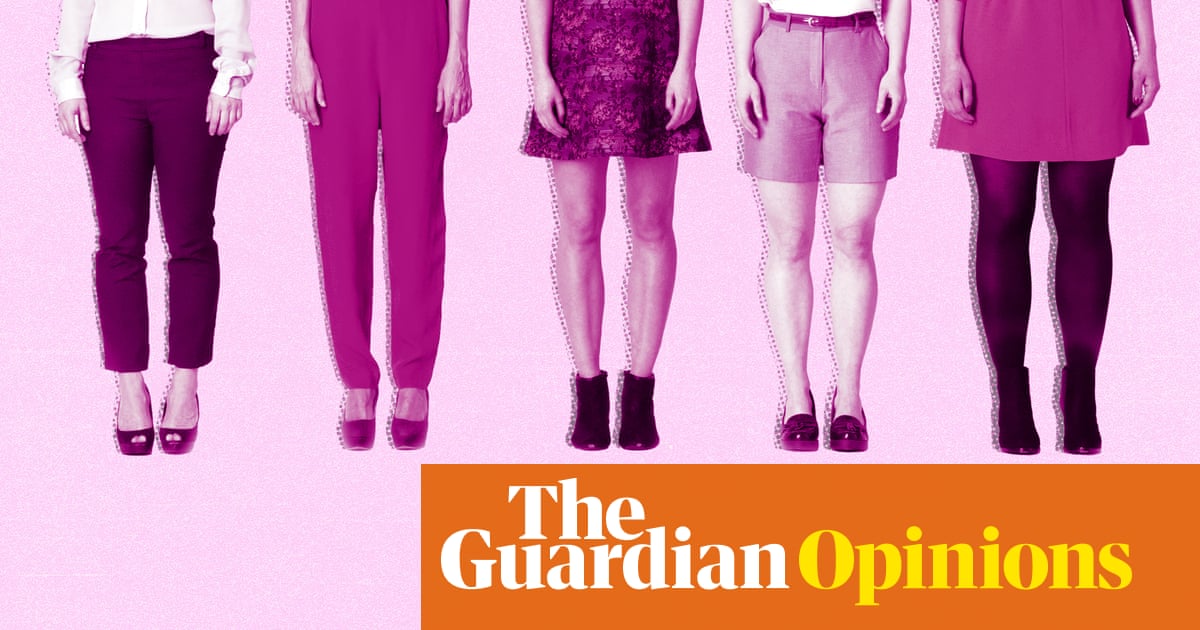Fun news from the Guardian’s “Everything is Awful” desk this week: the “womanosphere” cometh. The article heralds the arrival of “a crop of conservative personalities … convincing young women of a gender-essentialist worldview”.
What does such essentialism entail? The woman holding a sign reading “Make him a sandwich” is a strong clue. “Be thin, fertile and Republican” is the Guardian’s conclusion.
Yes, the people whose values brought January 6, Ice raids and Trumponomics to an abandoned container port near you are heaving resources intoa cultural propaganda assaulton young womanhood.
Evie magazine is one of the new fronts in the hard right’s endless culture war. As the Guardian article points out, it’s an old-school glossy magazine, offering makeover suggestions and lifestyle advice, but for women who find suffrage a burden. It’s less voting, more vibes as well as sex tips for women who are self-certified as virgins when they marry. Evie’s format recalls the glamour days of Cleo and Cosmopolitan, before those old magazines went full communist by saying such radical things as “nothing is worth dying of an eating disorder over” and society as we knew it collapsed.
Evie is American, but the culturally coercive gender messaging it represents knows no borders. Australia may be less polarised in its gender politics than that other place, but recent research showsa small but notable conservative influence has grown among local young women.
Evie itself reclaims the vintage appeal of the western woman’s magazine, which I remember fondly from my youth, offering the Photoshopped propaganda of self-hatred to girls compelled to compare their performance of femininity to unattainable external standards. A recent edition of Evie featured Ballerina Farm’s Hannah Neeleman as cover girl, modelling her unique brand of crispy blond locks and volunteer domestic servitude in neo-milkmaidian styling. The message here, girls, is clear: yes, if you marry the son of a billionaire, you too can have the life of a medieval peasant!
Evie and Hannah are, of course, agents of a broader campaign. Conservative bandwaggoner Candace Owens is apparently rebranding her ubiquitous web presence in “orchid” tones, positioning herself as a more mainstream women’s lifestyle influencer and part-time Hollywood gossipist for those who want Blake Lively content that’s antisemitic adjacent. Seeking out cultural commentary from a woman so bereft of virtue she wasrefused entry to Australiaover her “capacity to incite discord” hardly accords to any traditional mission of “how to be good in a bad society”.
The projects themselves may be coincidences, but there’s shared ideology to this. The American conservative legal activist and rightwing supreme court justice picker Leonard Leo spoke in 2024 of a need for Trumpism to “crush liberal dominance” in entertainment media; now America is here. Trump has appointed ageing rightwing crank Mel Gibson as a Hollywood “envoy”. His administration is shaking down news media, and money is flowing through his movement to any “content creator”, male or female (but certainly not in between), willing to sing its hymnal of gender binaries, illiberalism and dominant order.
The genius of this movement’s true leader, Steve Bannon, was to recognise way back in his Breitbart days that “politics flows downstream from culture”. The “monster power” he identified in the online 4chan community was absolutely the place to normalise hate speech as political speech; Trump’s emotionally dysregulated performances made him a candidate so familiar to that community, his politics didn’t need to be explained to them for a cultural alliance to form.
Those still struggling to understand how so many Americans seemed to have voted against their direct economic advantage and liberty have not studied Bannon’s cultural calculations. Consider Trump’s history as an avatar of reality television’s “immorality is entertainment” flavour. His visibility at WWE and UFC events marks Trump not only as culturally allied to the fandom but positioned within it, so that his political behaviour on everything from immigration to trade policy can be viewed through the fandom’s men-punching-men cultural frame.
Now consider Trump’s relationship to the Fox “infotainment” audience. The “who needs an expert when you’ve got me” podcast environment.Edgelord comedians. Cultural familiarity can act as shorthand that avoids getting bogged down in confusing policy information. We have a saying in the theatre that’s relevant here: “If you have to explain it, you’ve already lost the audience.” When you’re a low-information voter, “he likes what I like” becomes all the information required to vote your preference.
The womanosphere is an attempt by this same movement to now colonise the enormous and powerful fandoms of makeup and clothes, crushes on boys and pop culture gossip.
Will it work? Not if the young women who have beenheading in the liberal and opposite direction to the boyson the Jugend-train hold the line. The politics of boys insisting on women’s servitude and humiliation only tends to last until they decide they’d really prefer to get laid.
It’s to head off this oncoming challenge that the womanosphere is being created and promoted. It’s standard authoritarian “for every soldier a wife” stuff.
Girls, your future freedom and ours depends on your discernment, now.
Van Badham is a Guardian Australia columnist
